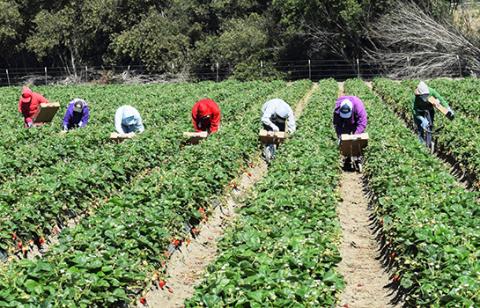
The Resnick Center for Food Law and Policy at UCLA School of Law has compiled an expansive online resource that tracks issues at the intersection of the novel coronavirus pandemic and food law and policy.
Resnick Center for Food Law & Policy
The Resnick Center performs cutting-edge legal research and scholarship in food law and policy to improve health and quality of life for humans and the planet.
Through its publications, courses, clinic and events, the Resnick Center affords students valuable scholarship, research and networking opportunities.Students can also gain unique policy advocacy training within the food justice movement through UCLA Law’s clinical education curriculum.
I. Ben Leonard, REGULATE FOP NOW! A Case for Mandatory FDA Regulation Front-of-Pack Nutrition Labeling
II. David Winston, Repealing the Agricultural Exemption in the FLSA and the NLRA
The Resnick Program invites UCLA students to submit articles analyzing food law and policy issues for publication on the Program website.
UCLA-Harvard Food Law and Policy Conference | October 24, 2014
Transparency in the Global Food System: What Information and to What Ends?
Panel 1: What We Talk About When We Talk About Transparency: The Meaning of "Transparency" In the Modern Food
UCLA-Harvard Food Law and Policy Conference | October 24, 2014
Transparency in the Global Food System: What Information and to What Ends?
Panel 2: Information to What End: The Role of the Consumer in Driving System Change
UCLA-Harvard Food Law and Policy Conference | October 24, 2014
Transparency in the Global Food System: What Information and to What Ends?
Panel 3: Can More Transparency Help Fix a Broken Food System?
Food and Drug Policy Forum, Volume 5, Issue 3 | April 3, 2015
In late 2013 we set about planning our first major conference as the newly established Resnick Program in Food Law and Policy at UCLA Law School. Despite the expansive range of topics encompassed by food
law and policy, there was a clear and obvious subject choice: food litigation. The growth in food litigation in recent years is striking and has significantly and distinctively helped shape the emerging field of food law.
The resurgence of urban agriculture reflects a variety of trends in American culture, including the continuing salience of the Jeffersonian vision and dissatisfaction with many aspects of the modern food system. This dissatisfaction covers a litany of challenges, including, among others, environmental harms, food access problems, hunger, and lack of transparency. To these ends, advocates have fought to reverse a century of laws and policies aimed at removing agriculture from city life.
Liberalising Agricultural Policy for Sugar in Europe Risks Damaging Public Health (with Oliver Mytton and Pablo Monsivais), British Medical Journal (2015).